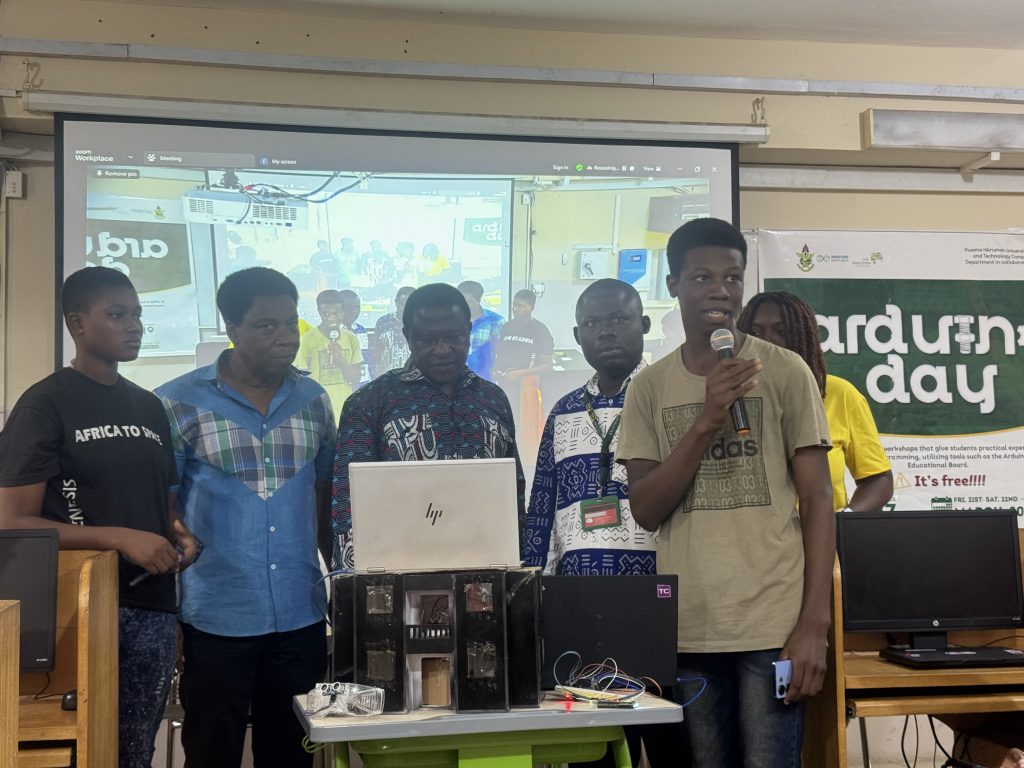By Florence Afriyie Mensah
Kumasi, March 26, GNA – The Department of Computer Science at Kwame Nkrumah University of Science and Technology (KNUST) has provided a platform for hands-on learning experience, equipping participants with skills in electronics, microcontroller programming and hardware prototyping.
The training organised in collaboration with Transaction Machine Environment (TME) Education for tertiary and senior high students used the Arduino-based educational board.
Arduino board is an open-source electronics platform based on easy-to-use hardware and software. Arduino boards are able to read inputs- light on a sensor, a finger on a button, or a message and turn it into an output.
The students also showcased projects they had developed over the period.
The works included the smart energy meter, car safety system, smart doors with face recognition, and boom gate system.

Dr. Oliver Kornyo, Coordinator for Arduino Day 2025, at the opening of the two-day event, said the training sessions would expose students to emerging technologies while providing practical insights to enhance problem-solving abilities, creativity, and real-world application of technology.
“Whether you are new to Arduino or looking to refine your expertise, these trainings sessions will ensure that you remain at the forefront of technological innovation”, he observed.
He said KNUST had been designated as an Arduino Centre, a move aimed at closing the gap between academia and industry and appealed for investors to support technology-driven initiatives and help expand the programme.
Dr Kornyo said beyond the in-house training, the Department recognised the importance of extending technology education to Science, Technology, Engineering and Mathematics (STEM) schools and a broader community.
Professor Michael Asante, Head of the Department of Computer Science, KNUST, emphasised that the initiative was a strategic effort to bridge the gap between classroom learning and practical application.
He said through collaboration, the Computer Science Department had established a state-of-the-art TME training room to support this mission.
The room is fully equipped with 10 advanced Arduino boards, each featuring Bluetooth and wireless modules.
Prof Asante believed that these tools could empower learners to design and execute sophisticated projects, fostering creativity and problem-solving skills.
The training room will be a hub for experimentation, collaboration, and hands-on engagement, key elements in developing the next generation of tech leaders, he explained.
Prof Joseph Abeiku Ackora-Prah, Dean, Physical and Computational Sciences at KNUST, said the future was technology, urging students to take practical technology training seriously.
GNA
KOM/CA